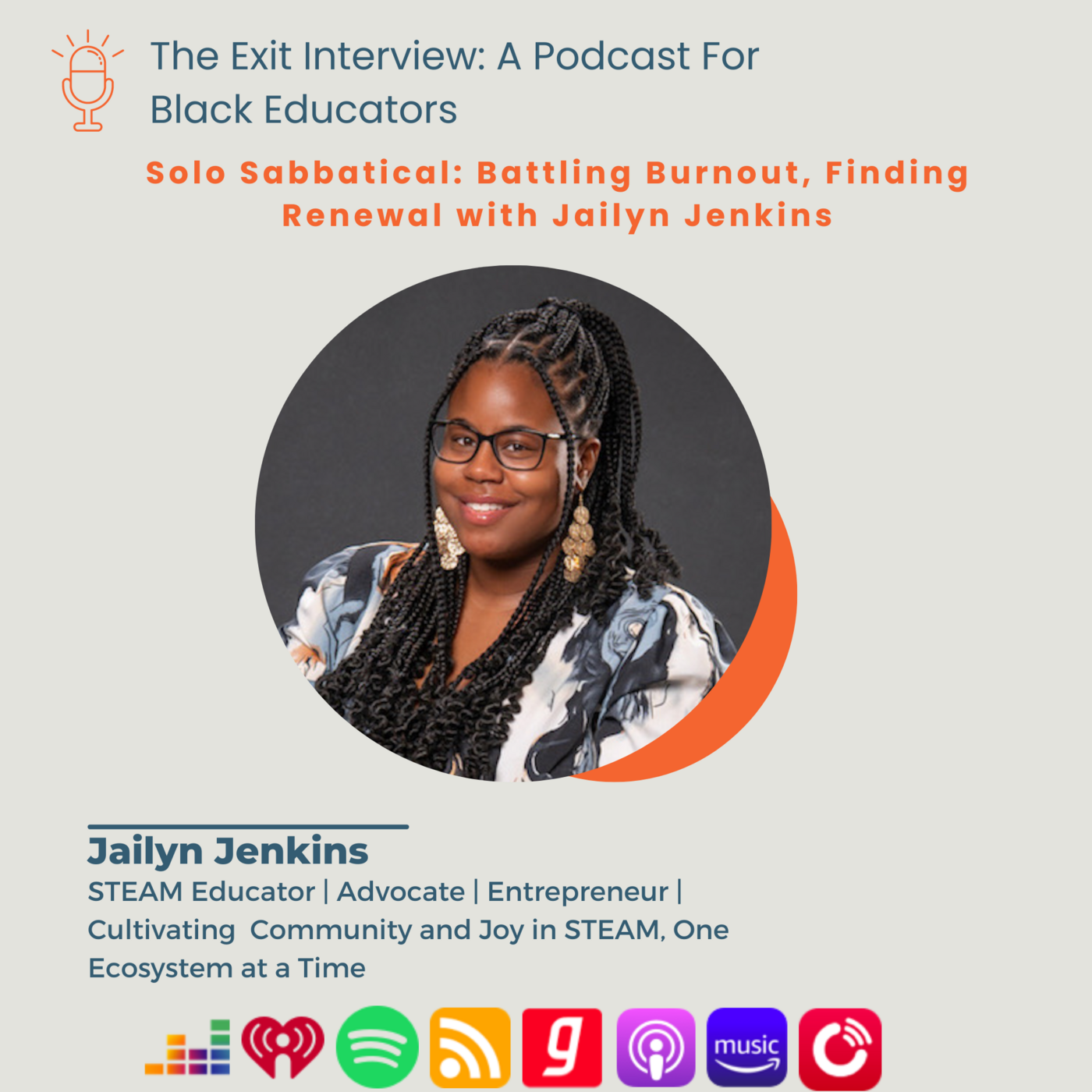Aug. 19, 2024
The Power of Rest and Healing in Education: Lessons for Educators and Educational Leaders

<h2>Introduction</h2>
<p>
In today's fast-paced educational landscape, educators and educational leaders are facing unprecedented levels of stress, burnout, and mental health challenges. Amidst the constant pressure to deliver high-quality instruction, meet accountability standards, and nurture student well-being, it is essential to prioritize our own well-being as educators and create more sustainable and fulfilling work environments.
</p>
<p>
This blog post will explore the transformative power of rest and healing in education. Through the experiences of Jailyn Jenkins, we will delve into the importance of self-care, boundary setting, and supportive workplaces for educators. We will also provide practical tips and resources for educators and educational leaders seeking to prioritize their own well-being and create more sustainable and fulfilling work environments.
</p>
<h2>Redefining Rest and Healing in Education</h2>
<p>
Rest and healing in education involve more than simply taking breaks or time off. It encompasses a holistic approach that prioritizes physical, emotional, and mental well-being. For educators, rest and healing can include:
</p>
<ul>
<li>Setting boundaries to protect personal time and energy</li>
<li>Practicing self-care activities such as exercise, meditation, and spending time in nature</li>
<li>Seeking professional help when needed to address mental health challenges</li>
<li>Engaging in activities that bring joy and fulfillment outside of work</li>
</ul>
<h2>Jailyn Jenkins' Journey of Renewal</h2>
<p>
Jailyn Jenkins, a former STEM educator who transitioned into a role supporting Black educators, speaks eloquently about the importance of rest and healing in her own journey. Facing burnout in her previous role, Jailyn realized the need to prioritize her own well-being. She took a sabbatical, during which she focused on self-care, healing, and exploring her passions. This experience led to her founding BEST (BIPOC Educational STEM Thinkers), a community initiative aimed at fostering joy, belonging, and advocacy amongst educators of color.
</p>
<p>
Jailyn's story highlights the transformative power of rest and healing. By taking time for herself, she was able to renew her passion for education, create a more sustainable work environment, and make a meaningful impact in her community.
</p>
<h2>Embracing Self-Care and Boundary Setting</h2>
<p>
Self-care is vital for educators' well-being and longevity in the field. Self-care can include activities such as:
</p>
<ul>
<li>Setting boundaries to protect personal time and energy</li>
<li>Practicing mindfulness and meditation</li>
<li>Connecting with loved ones and supportive communities</li>
<li>Prioritizing physical health through regular exercise and healthy eating</li>
<li>Engaging in hobbies and activities that bring joy and fulfillment</li>
</ul>
<p>
Setting boundaries is an important part of self-care. This involves setting limits on work hours, protecting personal time, and establishing clear expectations with colleagues, students, and parents. By setting boundaries, educators can protect their energy and well-being, and create a more sustainable work-life balance.
</p>
<h2>Workplace Support for Educator Well-Being</h2>
<p>
Educational leaders play a crucial role in creating workplaces that support educator well-being. This may involve:
</p>
<ul>
<li>Creating a culture of respect and support</li>
<li>Providing opportunities for professional development and growth</li>
<li>Fostering a sense of community and belonging</li>
<li>Offering flexible work arrangements and paid time off</li>
<li>Providing access to mental health resources and support systems</li>
</ul>
<p>
By creating workplaces that prioritize educator well-being, educational leaders can improve teacher retention, reduce burnout, and enhance the overall educational environment for students.
</p>
<h2>Practical Tips for Educators and Leaders</h2>
<p>
Here are some practical tips for educators and educational leaders who want to prioritize their own well-being and create more sustainable work environments:
</p>
<ul>
<li>Schedule time for self-care activities and stick to them.</li>
<li>Set boundaries to protect your personal time and energy.</li>
<li>Connect with colleagues, friends, and family for support.</li>
<li>Seek professional help if you are struggling with mental health challenges.</li>
<li>Advocate for changes in your workplace that support educator well-being.</li>
<li>Be a role model for self-care and well-being by setting boundaries and prioritizing your own health.</li>
</ul>
<h2>Creating Sustainable and Fulfilling Work Environments</h2>
<p>
By prioritizing our own well-being and creating supportive workplaces, educators and educational leaders can create more sustainable and fulfilling work environments. This means environments where:
</p>
<ul>
<li>Educators are supported and respected.</li>
<li>Burnout is reduced and well-being is prioritized.</li>
<li>Educators can bring their whole selves to work and feel a sense of belonging.</li>
<li>The educational experience is enhanced for all learners.</li>
</ul>
<p>
Creating sustainable and fulfilling work environments is an ongoing process, but it is essential for the well-being of educators, the success of students, and the future of education.
</p>
<h2>Conclusion</h2>
<p>
Rest and healing are essential for the well-being of educators and the success of our educational systems. By prioritizing our own well-being, embracing self-care and boundary setting, and creating supportive workplaces, we can create more sustainable and fulfilling work environments that benefit both educators and students.
</p>
<p>
To learn more about Jailyn Jenkins' journey and the importance of rest and healing in education, listen to <a href="https://www.exitinterviewpodcast.com/episode-39-solo-sabbatical-battling-burnout-finding-renewal-with-jailyn-jenkins/">Episode 39: Solo Sabbatical: Battling Burnout, Finding Renewal with Jailyn Jenkins</a> of The Exit Interview podcast.
</p>
Breaking Free: Najmah Ahmad on Achievement Addiction, Nonprofit Burnout, and the Journey to Wellness
Breaking Free: Najmah Ahmad on Achievement Addiction, Nonprofit Burnout, and the Journey to Wellness
In the latest episode of The Exit Interview: A Podcast for Black Educators, host Dr. Asia Lyons sits down with Najmah Ahmad, an educator, consultan…
The Value of Black Therapists in Addressing Racial Battle Fatigue
In the face of persistent racial injustice and systemic oppression within school systems, the mental health of Black educators can be significantly impacted. Racial battle fatigue, characterized by chronic stress, anxiety, and emotional exhaustion, …












